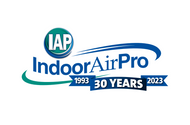How Dirty Air Ducts Can Harm Your Health

How Dirty Air Ducts Can Harm Your Health? (And What to Do About It)
You probably don't even think much about the air ducts that are hidden in your ceiling or walls, right? But those ducts play a crucial role in the air that you breathe every day in your home. When they get dirty, they can quietly destroy your health without you even knowing it. If you've been feeling sleepier than usual, sneezing nonstop, or just not feeling right at home, your air ducts may be the reason. Let's talk about why dirty air ducts matter and what you can do to fix them.
What Are Air Ducts, and Why Should You Care?
Air ducts are the channels that distribute warm or cold air from your heating or air conditioning system to all the rooms in your home. Consider them like the lungs of your home, breathing in and out all the time. The issue is that over time, dust, pet fur, mold spores, and other gunk build up in these ducts. So instead of clean air, you might be breathing all that muck every time your heater or AC comes on.
How Do Air Ducts Get So Dirty?
Even when you're dusting and vacuuming regularly, your air ducts will get dirty. Dust settles in there, pet fur and dander get inside, and when any moisture (maybe due to a leak or a high humidity level) is introduced, mold begins growing. Now and then, unwanted critters like bugs or mice happen to get inside and leave droppings.
As air ducts are not visible, they are rarely ever cleaned. And thus the grime just accumulates and recycles the same dirty air in your rooms.
How Does This Affect Your Health?
You can shrug and say, "Oh, it's just dust; how bad can it be?" Filthy air ducts, however, can create real issues, especially if you or someone in your family suffers from allergies, asthma, or other breathing problems.
-
Worsens Asthma and Allergies: Dust, pollen, pet dander, and mold in the ducts may exacerbate symptoms. Sneezing and coughing, watery eyes, and even asthma attacks may occur more frequently.
-
Respiratory Irritation: Mold spores or dust in the air will irritate your lungs when inhaled. It may cause coughing, congestion, or increase your risk of infection, especially if you're young, elderly, or have a weak immune system.
-
Makes You Feel Tired and Foggy: Poor indoor air will leave you feeling sluggish, with headaches, or even dizzy.
- Spreads Germs and Bacteria: The moisture in ducts can enable bacteria to multiply. When your HVAC is running, the germs can be distributed all over your home.
How Can You Tell If Your Air Ducts Are Dirty?
You don't have to be a detective, but here are some hints to check for:
-
Dirt or debris spilling out of your vents
-
Mildewy or moldy smell in your home
-
Allergy or asthma attacks tend to worsen indoors.
-
More frequent colds or respiratory disease
-
Dust is accumulating on vents
If you notice any of the above, it's a good idea to get your ducts checked.
What Can You Do?
-
Call in the Experts for Air Duct Cleaning
The most straightforward and most efficient method to have your ducts cleaned is to call in professionals. They have special vacuums and equipment to access areas that regular cleaning cannot reach and remove all of the dirt, mold, and grime.
-
Change Your HVAC Filters Regularly
Your HVAC filter catches dust and allergens in the air before they reach your ducts. Change it every month or two (or more often if you have pets). A HEPA filter will catch even more particles.
-
Keep Your Home Clean
Vacuum and dust frequently, and try to keep things dry. The less dirt and water in your home, the less it will make its way into your ducts.
-
Fix any Leaks or Moisture Problems.
If your ducts leak or the humidity is high, mold will grow. Seal holes and consider a dehumidifier if needed to keep it dry.
-
Use Air Purifiers as an Extra Aid.
If you want to help improve indoor air quality, HEPA-filter air purifiers do a great job of capturing particles left behind by your HVAC.
Protect Your Health by Keeping Your Air Ducts Clean
Dirty air ducts aren’t just a hidden mess—they can affect your health and how comfortable you feel at home. From making allergies worse to causing headaches and fatigue, the air you breathe matters.
By changing filters, cleaning your ducts professionally, keeping your home tidy, and managing moisture, you’ll help your family breathe easier and feel better.
If you want tips on how to maintain your ducts or a quick checklist to keep them clean, just ask. Taking care of your air ducts means taking care of your health—and that’s something worth breathing easy over.


